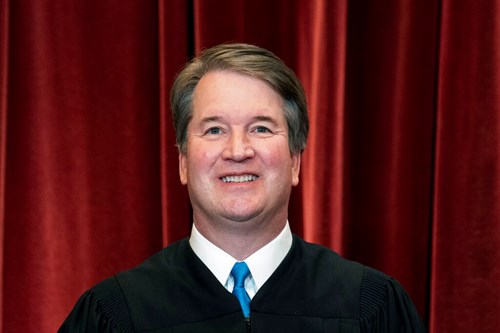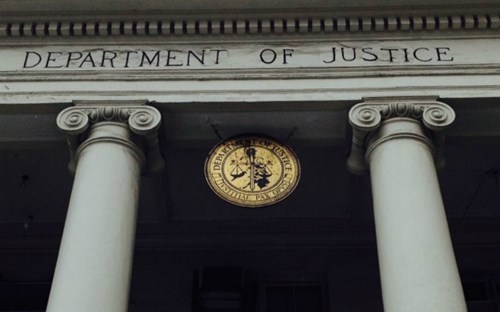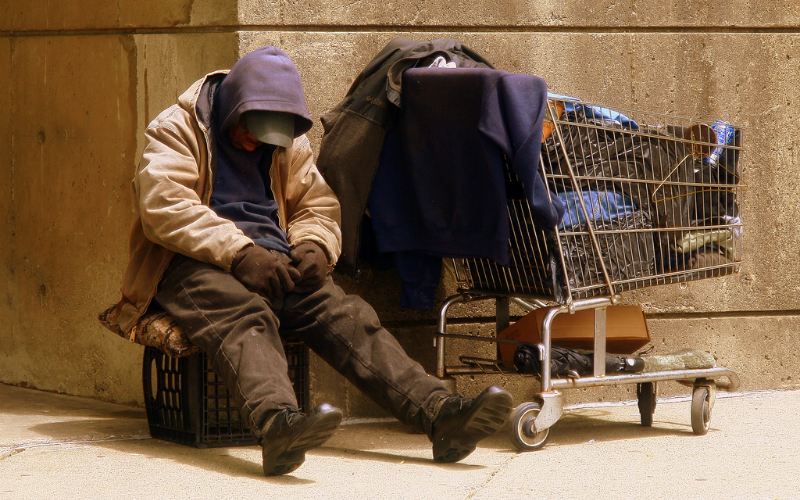The questions asked by conservative justices in oral arguments this week raised eyebrows by many and left one witness to the proceedings shaking his head in troubled doubt.
The case that was argued Monday, Murthy v. Missouri, comes after the attorneys general in two states, Missouri and Louisiana, filed suit filed against President Joe Biden, several federal agencies, and government officials claiming that the government pressured social media companies to censor conservative viewpoints and criticism of the Biden administration.
That allegation is no longer disputed. After billionaire Elon Musk purchased Twitter, the so-called "Twitter Files" were published by independent journalists who described backroom Big Tech-Big Brother collaboration, which the attorneys general say violated the First Amendment right of free expression.
Three 'deferential' justices could decide case
Several justices on Monday appeared ready to grant broad leeway to the government to interact with Big Tech social media platforms in matters of free speech.
 Those interactions were described in detail in a post-hearing op-ed published at The New York Post. Benjamin Weingarten, editor of RealClearInvestigations, said the federal government "played the victim" in a dubious claim that its right to free speech was being threatened by the lawsuit.
Those interactions were described in detail in a post-hearing op-ed published at The New York Post. Benjamin Weingarten, editor of RealClearInvestigations, said the federal government "played the victim" in a dubious claim that its right to free speech was being threatened by the lawsuit.
Three liberal justices seemed to side with the federal government's "perverse" argument, he wrote, while three conservatives justices appeared unpersuaded. That left three conservative justices - John Roberts, Brett Kavanaugh, and Amy Coney Barrett - who seemed more "deferential" to the government's argument.
"The case’s outcome therefore — and our right to free speech in the digital public square — is likely to hinge on how they rule," Weingarten concluded.
'I walked in incredibly optimistic'
Still, Missouri Attorney General Andrew Bailey said on Washington Watch Monday that he believes the case is on the right path.
"I think that the Supreme Court has recognized the enormous magnitude of the First Amendment violations committed by the Biden administration and also understands that there's got to be a remedy for those violations," he told show host Tony Perkins.
After attending the oral arguments, too, Dr. Jay Bhattacharya, professor of Health Policy at Stanford University, isn’t so sure.

Bhattacharya is a plaintiff in the case who been working with the Missouri Attorney General’s office on a variety of anti-mask mandates, anti-vaccine mandates and similar cases.
After Bhattacharya was been censored by social media platforms for his views on lockdowns and more, the staff asked him to join their lawsuit.
Bhattacharya soon found himself on the front lines of a free speech fight and was present at the oral arguments.
“I walked in incredibly optimistic. I’d never been to the Supreme Court for oral arguments before. I had tingles down my spine," ” he said on American Family Radio Friday. "As I walked out, I was depressed. I couldn’t tell where several of the conservative justices were. I thought it would be a slam dunk, 9-0 case, you see how naïve I was."
Bhattacharya experienced Big Tech censorship first-hand. He joined Twitter, under its previous ownership, in 2021. In a later conversation with Musk, the new owner, Bhattacharya found he’d been placed on a blacklist upon signing up.
Changing America as we know it
In the coming SCOTUS ruling, the professor believes the Supreme Court is facing a decision that could fundamentally change America.
“If you don’t have the kind of free speech that allows people to not worry that the government is looking over their shoulder to make sure you can’t say what you want to say, that you’re going to effectively get defamed, non-transparently...I think it’s the end of the Republic, at least as we know it,” he told show host Jenna Ellis.
 Before his attendance at oral arguments, Bhattacharya was intrigued during his participation in the case.
Before his attendance at oral arguments, Bhattacharya was intrigued during his participation in the case.
“This discovery in this case was amazing. We deposed Tony Fauci (the face of COVID policy in the U.S.). We deposed a man from the FBI named Elvis Chan. We deposed people from the CDC and so on. We could read the emails, and we found, basically, a pattern of the government leaning on social media companies, basically threatening them to pull down posts...even things that were true,” Bhattacharya said.
He shared an example of Facebook censoring a support group of people who had themselves or had seen loved ones experience side effects from the vaccine.
“They pushed Facebook to take those groups down so the patients couldn’t have support from each other,” Bhattacharya said.
If Big Tech failed to comply, there would be consequences. The threat was always there, spelled out or implied.
 “They threatened the social media companies that if they didn’t listen, didn’t obey, they would go after them on a regulatory basis...they would go after their business,” Bhattacharya told show host Jenna Ellis.
“They threatened the social media companies that if they didn’t listen, didn’t obey, they would go after them on a regulatory basis...they would go after their business,” Bhattacharya told show host Jenna Ellis.
A three-judge panel from the Fifth Circuit last fall reaffirmed the free speech as guaranteed by the First Amendment.
From the judges: “One White House official demanded more details and data on Facebook’s internal policies at least twelve times, including to ask what was being done to curtail 'dubious' or 'sensational' content, what 'interventions' were being taken, what 'measurable impact' the platforms’ moderation policies had, 'how much content [was] being demoted,' and what 'misinformation' was not being downgraded. In one instance, that official lamented that flagging did not 'historically mean that [a post] was removed.”
The judges found that the social media platforms were quick to participate in censorship though their willingness was somewhat less than what the White House wanted.
Big Brother persistency from the White House
“Often, requests for removal were met,” the judges wrote.
When they weren’t met, the White House didn’t back down.
“They continued to press the platforms on the topic of misinformation throughout 2021, especially when they seemingly veered from the officials’ preferred course. When Facebook did not take a prominent pundit’s “popular post” down, a White House official asked “what good is” the reporting system, and signed off with “last time we did this dance, it ended in an insurrection,” the judges wrote.
“The lower court found … they call it an Orwellian Ministry of Truth Censorship Industrial Complex,” Bhattacharya said, referencing George Orwell’s famous novel.
“The Fifth Circuit called it akin to what Al Capone would do in Chicago. The government would go to businesses and in effect say, ‘That's a nice business you got there, it'd be a shame if something were to happen to it,’ to force their censorship,” Bhattacharya said.
“Free speech rights apply to people who are both right and wrong, but especially in cases where there's a lot of like controversy and developing science. You definitely need free speech. You can't have the government presumed to take a position that was it knows is best. It's not an omniscient entity,” he said.














